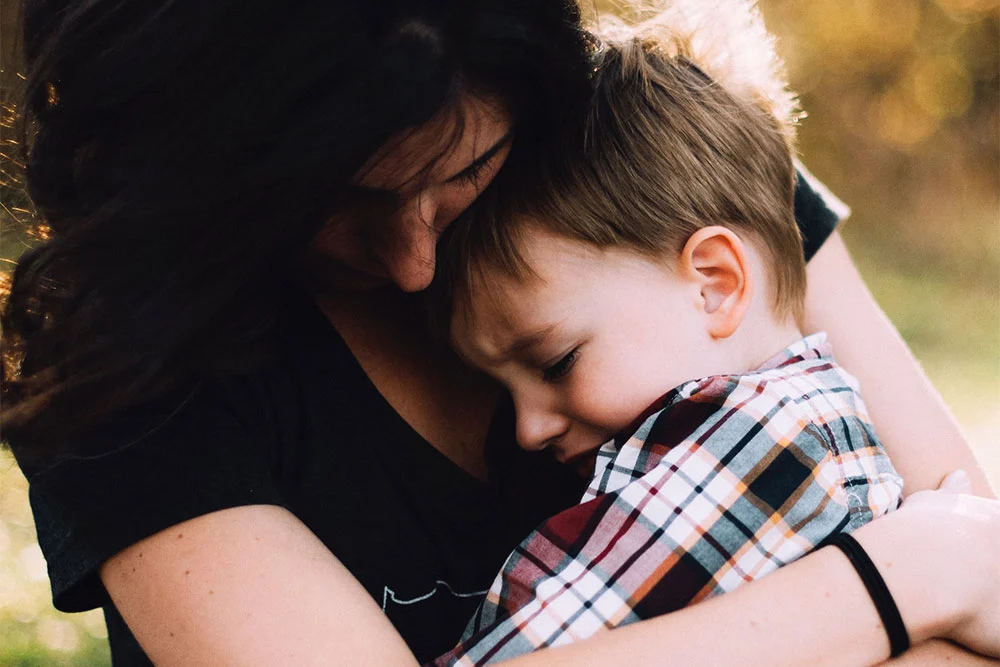How to Help Your Child When a Loved One Dies
When a child experiences the death of a person they love, it can be a very turbulent time for them. It’s common for them to not be able to immediately register or comprehend what happened. There are practices you can implement to help them adapt and work through any heavy-heartedness they may feel. Listed below are a few recommendations on how you can comfort and guide them.

Create a Safe Space for Children to Talk About It
A child may not want to express how they feel about a loved one passing. Part of this may be because they don’t exactly know how to vocalize their emotions. Don’t try to force or push them into talking about it before they’re ready. Instead, let them know that when they do want to talk, you’re there to listen.
If they and when they feel like discussing the topic, make sure it’s a safe space for them to do so. Don’t judge them or cut them off. Validate what they’re trying to express, and listen intently until they are ready for you to comment. If needed, help them make sense of the matter, using clear and simple language.
Make Sure That the Child Knows it Isn’t Their Fault
A child may acquire the belief that they are somehow accountable for the passing of a loved one. As they are trying to assimilate the situation, they may feel remorse and that what happened was because of them. Articulating these feelings is another piece of the inner struggle, and they often don’t know how to vocalize these things.
When the time is right, assure them that there is no need to place the blame on themselves. If applicable, remind them that we have no control over accidents that happen. Let them know that when someone passes, it is part of the process of life.
Kindly Answer Any Questions They Have
Children will typically ask plenty of questions, especially if they don’t have a full grasp of the situation. Some of their questions may be tough to explain, particularly if you don’t quite know the answer yourself.
If and when this happens, remember it’s okay not to know. Answer their questions as best as you can and be honest. If they’re still confused, be sure they feel like they can ask you for clarity.

Lovingly Remember the Loved One Who Passed
If possible, visit the memorial service with the child to help them digest what’s going on. If the child has memories of the loved one, reminisce with them – perhaps speaking aloud to an urn. No matter how difficult the reminders are, it will help them process.
Don’t make the child feel that they shouldn’t talk about the deceased. Talking about the loved one and what happened will help a child process the situation. Keep positive memories alive and share those memories with each other.
Take a Moment For Yourself
It is fundamentally important to be strong and emotionally available for a child after a loved one has passed on. However, doing this can be incredibly tough if you’re feeling heartbroken yourself. If you need to take a moment to lament and grieve alone, it is perfectly acceptable to do so.
You can’t be strong for a child if you don’t emotionally take care of yourself. Therefore, if you need a timeout, it’s absolutely okay and recommended to take one.
Ensure That the Child Feels Your Love and Feels Secure
When a child is trying to comprehend a loss, there are a variety of emotions that they experience. They may feel sorrow, confusion, or shame. Since they may not know how to vocalize these feelings with words, it may come through as outbursts of aggression or hostility.
It is vital that they feel loved and secure after a traumatic event, especially if they are acting out. Let them know it’s normal to feel tearful or even mad sometimes (as long as it isn’t taken out on others). Teach them that how they’re feeling is normal, and let them grieve. Make sure that the child knows that the circumstances don’t change the amount of love you have for them.
Generally, if a child is feeling mentally and emotionally burdened because of a death, be a support to them. Answer their questions with simple words, pay attention to what they say, and remember the fondness of the person who passed. The most important thing is to make certain that they feel your love.

